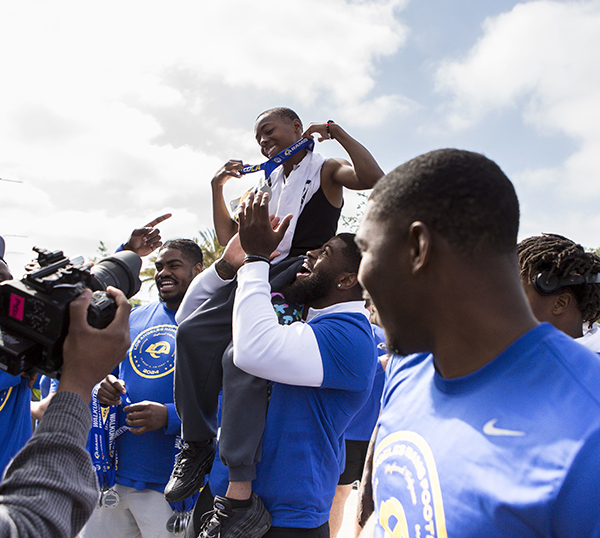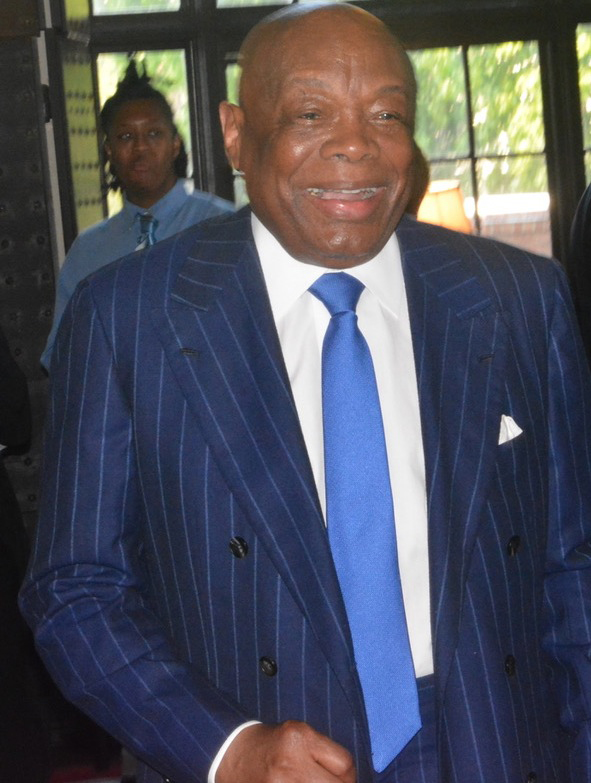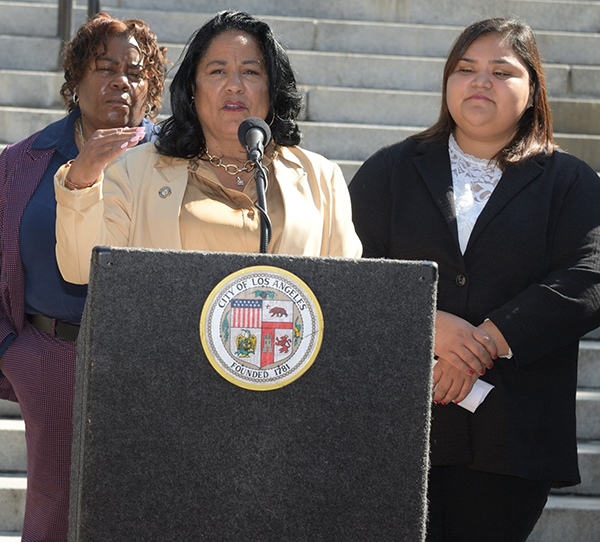By Ray Richardson
Contributing Writer
LOS ANGELES — Several City Council members are renewing efforts to ban cashless retail businesses in Los Angeles, a move the elected officials believe would give many residents in underserved communities the opportunity to fully participate in the city’s economy.
A motion proposed by 10th District Councilwoman Heather Hutt in 2023 will be reviewed in June by the City Council’s Trade, Travel and Tourism Committee.
If the committee formally approves the motion, Los Angeles will join a growing number of cities around the country that prohibit businesses from refusing to take cash for transactions.
“Banning cashless businesses is a crucial step in ensuring that every L.A. resident has equal access to our economy and infrastructure,” Hutt said at a press conference outside City Hall April 30. “Cashless businesses create an economy that is not inclusive. The city can create a level playing field.”
If Hutt’s motion gets final approval, the Los Angeles City Attorney’s Office will draft an ordinance to make the ban official and change the landscape on how many people will conduct their financial matters.
Hutt was joined at the press conference by Councilwoman Eunisses Hernandez (District 1) and Councilman Hugo Soto-Martinez (District 13). Hutt’s motion in 2023 was endorsed by the City Council with a 13-0 vote, an indication that the proposed ban has overwhelming support among the city’s lawmakers and community leaders.
The three council members and other district leaders represent a large percentage of constituents who do not have bank accounts or transaction cards that provide access to digital payment systems.
Hutt and fellow council members are hoping to implement legislation that allows underserved residents the chance to conduct routine business matters with cash.
“This ban is for the everyday people who work and get paid in cash, the people who are just trying to survive,” said Alberto Retana, president of the Community Coalition, a nonprofit in South Los Angeles that provides a variety of services. “Cashless businesses are a form of economic suppression. It has dire consequences on the most vulnerable citizens in LA. It tells many people that they don’t belong.”
Many retail stores, restaurants and small businesses turned to cashless operations during Covid-19 in 2020. Handling cash payments led to fears among management and staff of exposure to Covid from customers.
When the pandemic ended, many businesses opted to stay cashless, primarily because of safety concerns. Numerous data sources reported significant decreases in robberies at businesses during and after the pandemic.
The push for a cashless ban will likely meet resistance from business owners who don’t want their staff handling money again.
“This is idiotic,” Jay Branchley, a co-owner of several stores in the Los Angeles area, told the California Globe, a news website that covers politics in California. “A few people felt bad for not having a credit or debit card, but now we have to face that crime will rise again. This is awful.”
A different side of the safety issue is drawing support for the cashless ban.
Leslie Belt, director of compliance at the Jenesse Center, a domestic violence intervention agency in Los Angeles, said the ban will help battered women and their children avoid detection by abusers.
“Using cash to pay for things provides survivors with a lifeline,” Belt said. “It offers them the ability to discreetly access resources, secure shelter and cover basic necessities without being tracked. This lack of financial privacy can compromise a survivor’s safety as they attempt to rebuild their lives free from violence.”
Ray Richardson is a contributing writer for The Wave. He can be reached at rayrich55@gmail.com.










